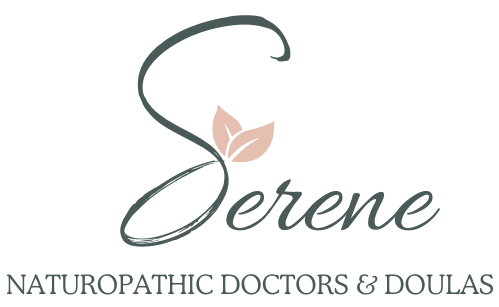Navigating Insurance Coverage and Tax Deductibility for Naturopathic Medicine

Naturopathic medicine, a holistic approach to healthcare is gaining major popularity. Navigating insurance coverage and understanding its tax deductibility are topics that lack public awareness. This blog post explores these aspects to help you make informed decisions about incorporating Naturopathic treatments into your healthcare plan.
Serene Clinic Naturopath Tax Deductible Book Your Free Consultation Today.
Insurance Coverage for Naturopathic Medicine
1. Varies by Location and Policy
Insurance coverage for naturopathic medicine varies significantly based on geographic location and individual insurance policies. Serene Clinic Naturopathic Doctors are Ontario licensed practitioners and recognized under Ontario insurance companies.
2. Types of Covered Services
When covered, insurance may include various Naturopathic services such as consultations, acupuncture and herbal medicine. However, coverage for specific treatments or therapies can differ from one policy to another. It’s crucial to review your insurance plan’s terms and conditions to understand what is included.
3. Claim Submission and Reimbursement
In Ontario, it’s common for patients to pay upfront for naturopathic services and then submit receipts to their insurance provider for reimbursement. Ensure you keep all receipts and documentation of your visits and treatments, as these will be necessary for filing claims.
Serene Clinic Naturopath Tax Deductible Book Your Free Consultation Today.
Tax Deductibility of Naturopathic Medicine in Ontario
1. Medical Expenses and Tax Credits
In Canada, including Ontario, certain medical expenses can be claimed as a tax credit on your income tax return. Naturopathic services may qualify as eligible medical expenses if they are provided by a licensed naturopathic doctor. This tax credit can help offset the cost of medical care not covered by insurance.
2. Eligibility and Documentation
To claim naturopathic treatments as a medical expense, the services must be medically necessary and provided by a registered practitioner. Eligible expenses include consultations, diagnostic tests, and prescribed treatments. It’s crucial to keep all documentation, including receipts and a note from your naturopathic doctor, detailing the medical necessity of the treatment.
3. Limitations and Non-Eligible Expenses
While many naturopathic treatments can be claimed, there are some limitations. Over-the-counter supplements, vitamins, or treatments not deemed medically necessary may not be eligible for tax credits. It’s important to consult with a tax professional or review the Canada Revenue Agency (CRA) guidelines to understand what can be claimed.
Serene Clinic Best Naturopath Toronto Book Your Free Consultation Today.
4. Filing Your Tax Return
When filing your tax return, include all eligible medical expenses, including those for naturopathic treatments. The CRA requires proper documentation to substantiate your claims, so ensure you have detailed records of all expenses and the reasons for the treatments.
Steps to Take
1. Check Your Insurance Plan
Begin by reviewing your extended health insurance policy or contacting your insurance provider to understand your coverage for naturopathic services. Clarify any details about in-network providers, reimbursement processes, and the types of treatments covered.
2. Consult with a Tax Professional
If you incur significant costs for naturopathic medicine, consulting a tax professional can help you maximize your tax credits. They can provide guidance on eligible expenses and how to document them properly.
3. Maintain Thorough Records
Whether for insurance claims or tax deductions, keeping detailed records of your naturopathic treatments and expenses is essential. This includes receipts, invoices, and any communications with your healthcare provider or insurance company.
Serene Clinic Best Naturopath Toronto Book Your Free Consultation Today.
Conclusion
In Ontario, understanding the nuances of insurance coverage and tax deductibility for naturopathic medicine can help you better manage your healthcare expenses. By staying informed and keeping meticulous records, you can ensure that you receive the care you need while maximizing potential financial benefits. As naturopathic medicine continues to be a valued component of healthcare, knowing how to navigate these aspects will support your overall well-being.
Serene Clinic Naturopathic Clinics Toronto Book Your Free Consultation Today
Frequently Asked Questions
Answer: Coverage for naturopathic medicine varies by insurance provider. While some plans cover consultations, acupuncture, and herbal medicine, others may have limited or no coverage. It’s crucial to check your specific policy.
Answer: Typically, you pay for naturopathic services upfront and then submit receipts to your insurance provider for reimbursement. Keep all receipts and documentation of your visits for claim processing.
Answer: Some naturopathic treatments may qualify as medical expenses and be tax-deductible. To be eligible, the services must be medically necessary and provided by a licensed naturopathic doctor. Consult with a tax professional for specific guidance.
Answer: You’ll need receipts for the services, a note from your naturopathic doctor detailing the medical necessity of the treatment, and any other relevant documentation requested by the Canada Revenue Agency (CRA).
Answer: No, not all naturopathic treatments are tax-deductible. Over-the-counter supplements and treatments not deemed medically necessary may not qualify.
Answer: Generally, vitamins and supplements are not tax-deductible unless prescribed by a doctor for a specific medical condition.
Answer: Contact your insurance provider to inquire about in-network naturopathic doctors. You can also search online directories or ask for recommendations from friends or family.
Answer: Naturopathic doctors focus on natural therapies and prevention, while medical doctors use conventional treatments like medication and surgery. Both have different approaches to healthcare but can work together to provide comprehensive care.
Answer: Naturopathic medicine can be effective for a variety of conditions, including chronic pain, digestive issues, allergies, and stress management. However, it’s essential to consult with a qualified practitioner to determine if it’s suitable for your specific needs.
Answer: It’s generally safe to combine naturopathic and conventional treatments, but it’s crucial to inform your doctors about all treatments you’re using. They can help ensure there are no interactions or contraindications.




